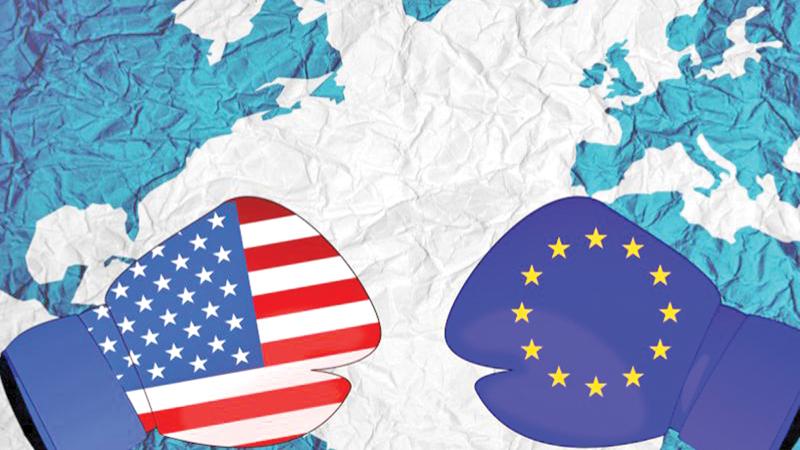
The latest trade battle between the US and the EU, as seen by economists and trade experts here, would have more indirect consequences for Sri Lanka rather than having a direct bearing on trade, emerging from the spillover effects of the trade restrictions between the two large trading partners.
Professor of Economics, University of Colombo and Chairman Institute of Policy Studies Sirimal Abeyratne said the US is acting in this way, because it is having a huge trade deficit and major job losses stemming from investment out-flows from the country over the years. The Trump administration is trying to correct this by adopting protectionist policies which is unlikely to have a direct impact on Sri Lanka due to the limited exposure of our trade to the USA.
However, he said we need to be cautious of the indirect effect of the trade restrictions between the US and the EU. The indirect impact can be substantial as protectionist tendencies of advanced countries could have negative repercussions on world trade. Sri Lanka being a part of world trade, plans to have its own trade expansion. The negative spillovers of the US-EU trade battle could stifle Sri Lanka’s trade with the rest of the world.
“Positively an expansion of Asian economies as a result of trade restriction in the two large partners could be inevitable and in years to come, Sri Lanka will be able to expand international trade with neighbouring Asian economies enabling it to off-set losses emerging from the US-EU and US-China trade battles,” Prof. Sirimal said.
The US has been given the go-ahead to impose tariffs on $7.5bn (£6.1bn) of goods it imports from the EU in the latest chapter in a 15-year battle between the US and the EU over illegal subsidies for plane-makers Airbus and rival Boeing.
The World Trade Organisation (WTO) ruling will mean tariffs on EU goods ranging from aircraft to cheese, olives and jumpers from 18 October. Brussels has threatened to retaliate similarly against US goods. US trade officials said the tariffs would be set at a 10% rate on aircraft and 25% on agricultural and other items. A list of all items that will be subject to the additional tariffs has been prepared, most of which will apply to imports from France, Germany, Spain and the UK.
However, the European Commission, which has proposed tariffs on $20bn (£15bn) of US goods, said it hopes to reach a settlement.
US trade officials said the EU’s settlement offer came years too late and did not resolve US concerns about ongoing subsidies. Imposing tariffs is intended to produce a better proposal, they added.
For years, Europe has been providing massive subsidies to Airbus that have seriously injured the US aerospace industry and our workers.
These tariffs are separate to US President Donald Trump’s ongoing trade disputes with countries around the world.
Those were sparked in March 2018 when his administration announced tariffs of 25% on steel and 10% on aluminium imported into the US.
It prompted the EU to impose €2.8bn (£2.4bn) of duties on US goods such as bourbon whiskey, motorcycles and orange juice last June.
While the Boeing-Airbus fight pre-dates Trump, another wave of tariffs adds to concerns about global trade, which has slowed significantly amid the many disputes.
